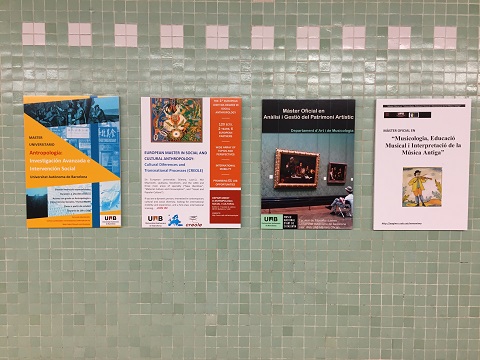The members of the research group teach anthropology at the undergraduate, graduate and postgraduate levels, together with the other members of the Department of Social and Cultural Anthropology. Most of this teaching takes place in the four educational programs of the Department:
- The four-year Bachelor´s Degree (BA) in Social and Cultural Anthropology (awarded excellence status by the Agency for Management of University and Research Grants (AGAUR) of the Generalitat de Catalunya),
- the Official Master Degree in Anthropology: Advanced Research and Social Intervention (MA, a one-year, 60 ECTS program),
- the two-year intra-European Joint Master Degree in Social and Cultural Anthropology (the “Creole” program, MA, 120 ECTS), and
- the PhD Degree in Social and Cultural Anthropology of the UAB (which was awarded the mention of excellence of the national government in the last period that this mention was awarded).
In these programs, the members of the research group teach courses that are related to the research areas of GRAFO (as well as other couses).
Also, several members have taught courses in other MA and postgraduate programs abroad and in Catalonia.
